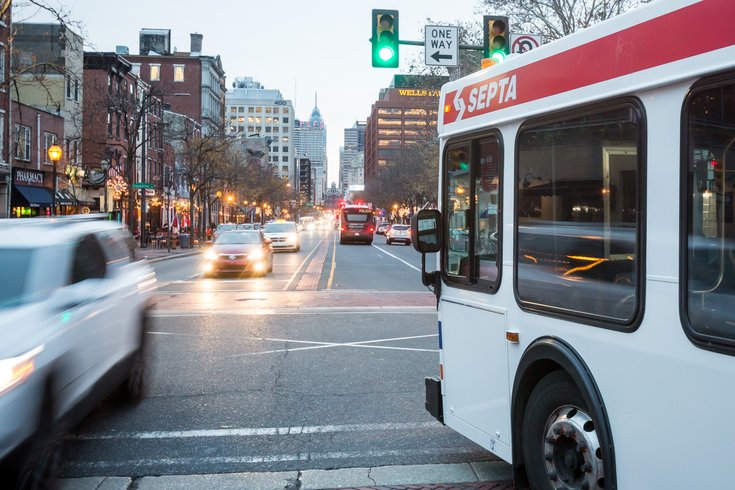
December 13, 2024
 Thom Carroll/for PhillyVoice
Thom Carroll/for PhillyVoice
SEPTA is preparing to debut 10 new electric buses in January. The vehicles run on hydrogen fuel cells, and have no tailpipe emissions.
SEPTA is preparing to roll out 10 new buses that generate zero tailpipe emissions.
The electric vehicles will likely enter service in January, though the transit authority hasn't set a date. The buses are powered by hydrogen fuel cells, which make for a quieter ride and lower maintenance costs. They have not been assigned specific routes, according to SEPTA media relations director Andrew Busch, and will likely cycle among various lines.
"One of the advantages of fuel cell technology that we're looking to demonstrate is the ability to run any route out of any depot," Busch said via email. "So while the specific plan has not been determined yet, the expectation is that we'll be running them on different routes once they enter service."
Riders can see the new buses Saturday at a public unveiling at the Bakers Centre shopping complex, at 2800 Fox St., from 12-2 p.m.
SEPTA announced plans to purchase the vehicles in 2023 from the manufacturer New Flyer of America. The $17.05 million contract was partially subsidized by a grant from the Federal Transit Administration.
Busch said the SEPTA's budget deficit has not "significantly stalled or impacted" its wider zero emission bus program. SEPTA hopes to transition all of its vehicles to fully electric models by 2040.
It will be a significant jump – only 2.7% of buses currently meet that criteria – but the agency has spent the past two decades swapping in hybrid vehicles that run on electricity and diesel. SEPTA removed the last of its diesel-only powered buses from service within the last year, Busch said.
"We've been fortunate to have received various grants to support our vehicle pilot projects, as well as help fund the needed facility upgrades. So we're still able to continue advancing the program while we wait for long-term funding solution to be determined," Busch said.
Follow Kristin & PhillyVoice on Twitter: @kristin_hunt
| @thePhillyVoice
Like us on Facebook: PhillyVoice
Have a news tip? Let us know.